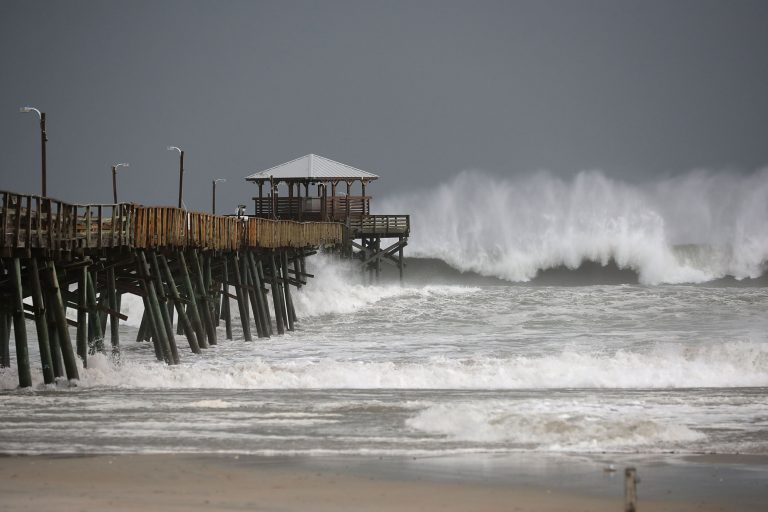Hurricane Isaias Targets U.S. East Coast!

After leaving a deadly trail of destruction across the Caribbean Islands, Hurricane Isaias is now on a collusion course with the east coast of the United States. The storm, currently centered over the central Bahamas, is showing signs of strengthening as it is moving over some very warm water.
Hurricane Isaias brewing in Caribbean.
An energetic storm, poised to strike the Southeast U.S. pic.twitter.com/GnSTXmJleU
— Dakota Smith (@weatherdak) August 1, 2020
Isaias’s journey began a week ago as a tropical wave originating off the coast of Africa. The system crossed the Atlantic, encountering dry air and upper level shear, but its circulation was not disrupted. Upon reaching the Greater Antilles earlier this week, it encountered a more favorable environment and was named late on Wednesday night. Before reaching its current position, Isaias crossed the island of Hispaniola. Normally hurricanes rapidly lose intensity as they interact with the very high mountains of the island, but not Isaias. Isaias is proving to be the little storm that could, by surviving inhospitable conditions that would easily destroy most other storms.
Even nature preaching social distancing
Quite a sight to watch indeed #Isaias #HurricaneIsaias #hurricaneseason2020 #COVID19 pic.twitter.com/M4ciRJrsIW
— Weatherwiz (@Weatherwiz007) August 1, 2020
Widespread damage and several deaths have been reported in Puerto Rico and the Dominican Republic due to Isaias. In the Dominican Republic, hundreds of thousands of people are without power as strong winds have torn off roofs and brought down trees and power lines. In the city of Puerto Plata, more than 1100 homes have been damaged. Landslides and flash flooding have ravaged Puerto Rico, with numerous water rescues being performed across the island. Puerto Rican farmers are predicting millions of dollars in losses, as many crops, particularly bananas and coffee, have been destroyed.
Puerto Rico National Guard troops rescued residents who were left stranded by floodwaters from Tropical Storm Isaias pic.twitter.com/9mPcKvVDNV
— Bloomberg QuickTake (@QuickTake) August 1, 2020
The fury of Isaias is expected to reach the southeastern United States by late Saturday night, as hurricane warnings are in place along the east coast of Florida. A landfall in Florida is not likely, due to the presence of an upper level trough moving out of the Midwest, which may steer Isaias to the north, while just straddling the coastline. Nonetheless, Florida will see hurricane conditions in the form of heavy rain, strong winds, coastal surge, and beach erosion. Isaias’s wind-field extends 200 miles (321 km) from its center, meaning even without a landfall, inland areas will experience at least tropical storm force winds. A landfall may eventually occur in the Carolinas early next week, as Isaias is drawn northward, but is likely to occur as a tropical storm.
LissetteCBS4: RT @NHC_Atlantic: #Isaias is now a hurricane based on data from the Air Force Hurricane Hunters. The intensity forecast shows a stronger storm than before, but the track forecast is unchanged. Go to https://t.co/aWSCOCAgNA for details. pic.twitter.com/eQFQuTD3ZO
— kflmiami427 (@kflmiami427) August 1, 2020
